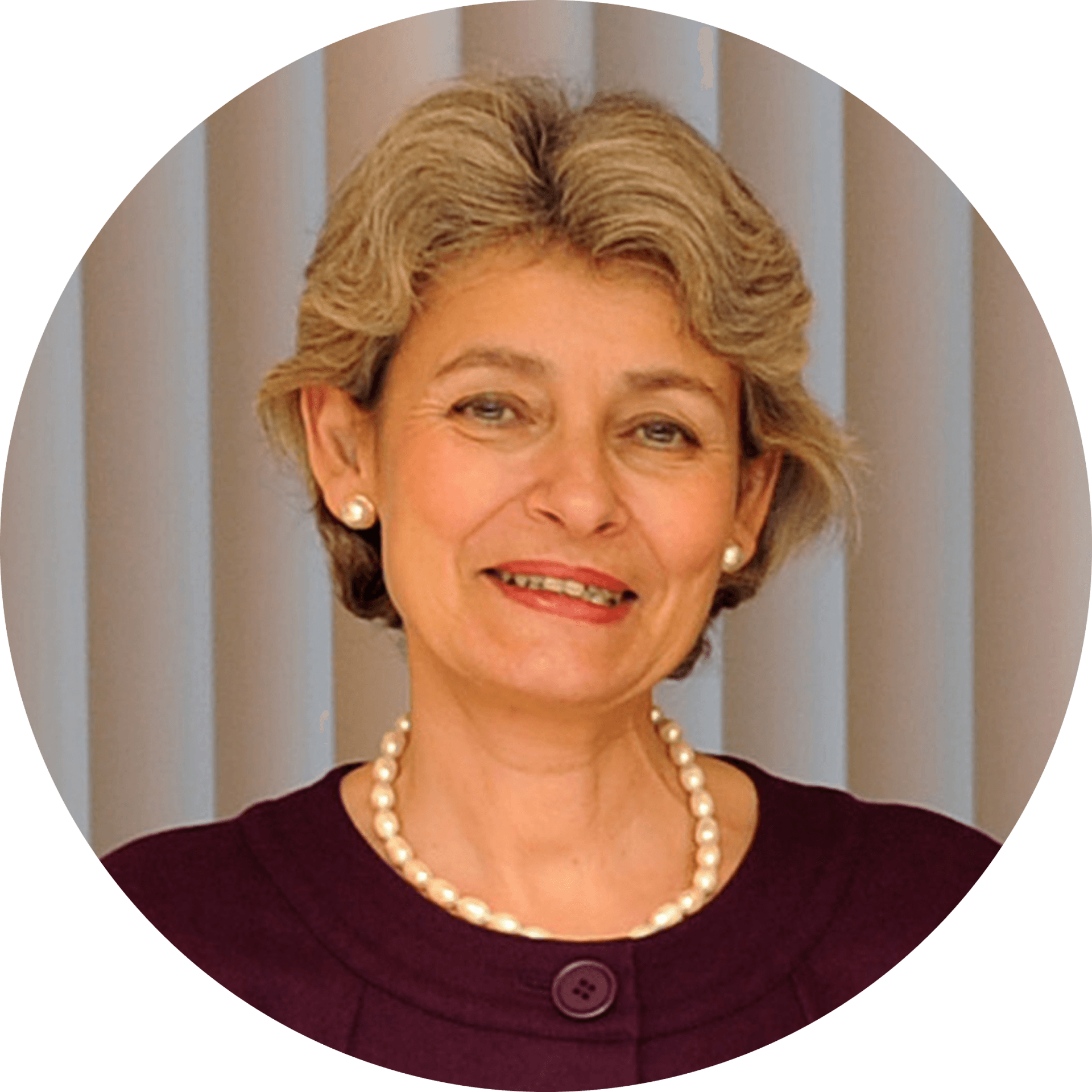
Former Director-General of UNESCO, Bulgaria
ISC Patron and Co-chair of the International Science Council’s
Global Commission on Science Missions for Sustainability
Irina Bokova, born in Sofia (Bulgaria), has been two terms the Director-General of UNESCO from 2009 to 2017.
As Director-General of UNESCO, Irina Bokova was actively engaged in the adoption of UN Agenda 2030 for Sustainable Development, particularly on “inclusive and equitable quality education and life-long learning for all», promoting the critical role of culture and science for development, as well as the protection of the world’s cultural heritage.
From 2013 to 2017 she chaired the Scientific Advisory Board with the UN Secretary General, entrusted to analyse and give recommendations to the science-policy interface within the Sustainable Development Agenda. She was also actively engaged in promoting the adoption by the UN General in 2017 of for the UN Ocean Science Decade for Sustainable Development (2021-2030).
She has received state distinctions from more than 40 countries and is Doctor honoris causa of leading universities across the world, such as King’s College, Durham University and University of Edinburgh, UK, Paris-Saclay, France, Boston University, US, Catholic University of Milan, Italy, Tonji University, China, among others.
In 2016 Irina Bokova was on the Forbes list of the most influential women.
In 2020, she was elected International Honorary Member of the American Academy of Arts and Sciences and in 2021 – Honorary Fellow of the World Academy of Arts and Sciences (WAAS).
Irina Bokova co-chairs the ISC Global Commission on Science Missions for Sustainability.
In 2022, Irina Bokova became the ISC Patron, joining internet pioneer Vinton G. Cerf, former President of the Republic of Ireland Mary Robinson, and Founder of the Library of Alexandria Ismail Serageldin, to advocate for the global voice for science.
A Patron to the ISC is a prestigious title given to those who support science as a global public good, by dedicating their time to promote science and its potential to deliver knowledge which can inform transformative political and wider societal responses to contemporary global challenges.
Photo credit: UNESCO/Nora Houguenade